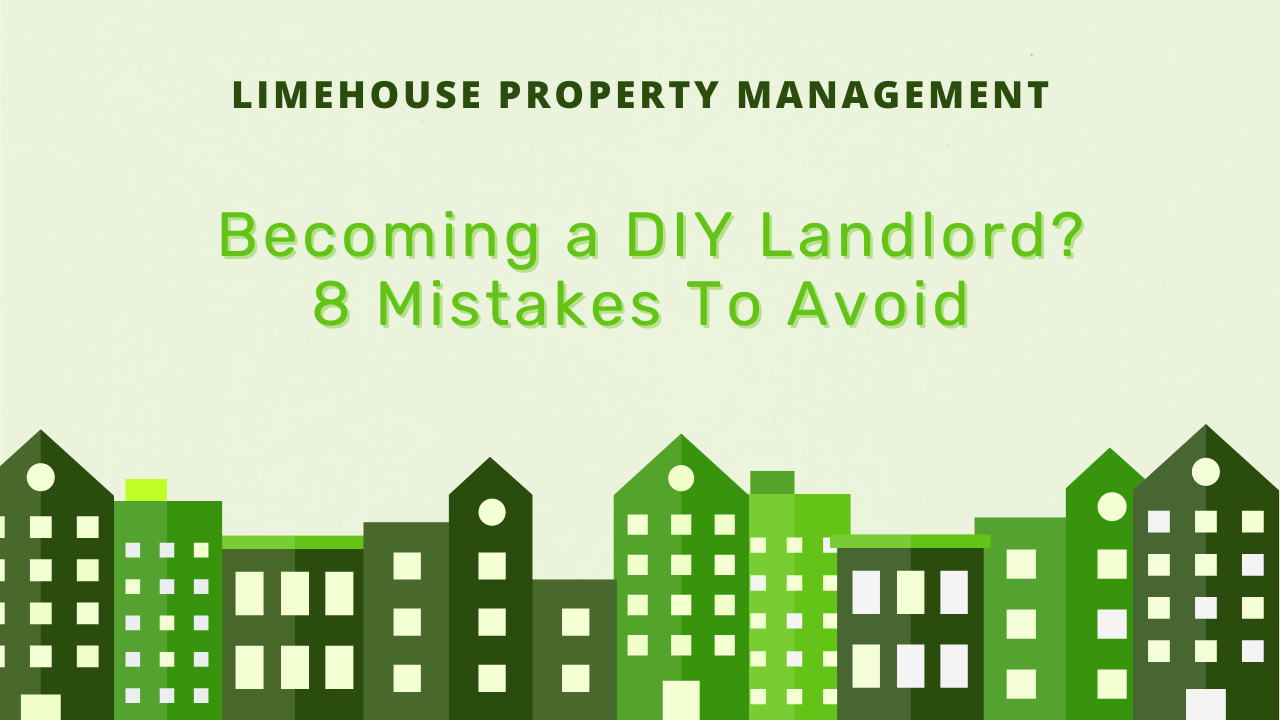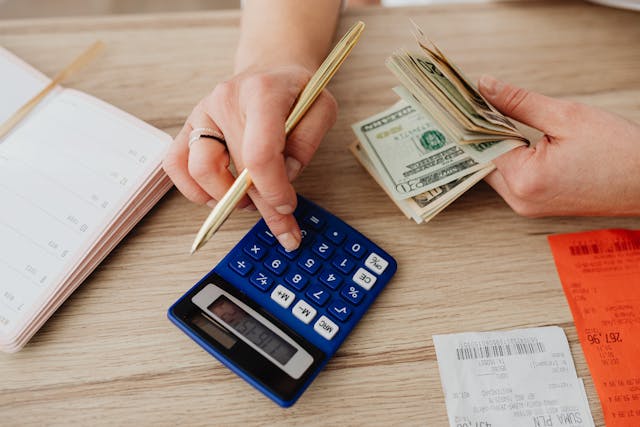Becoming a DIY Landlord? 8 Mistakes To Avoid

Thinking about managing your rental property on your own? Becoming a DIY landlord can be an exciting and profitable venture, but it also comes with its fair share of challenges. Are you prepared to handle the responsibilities that come with it?
Many first-time landlords make avoidable mistakes that can lead to costly consequences. In this article, Limehouse Property Management will guide you through the top 8 mistakes to avoid, ensuring that your experience as a DIY landlord is as smooth and successful as possible.
Skipping Background Checks: A Risky Move
One of the biggest mistakes a DIY landlord can make is not running thorough background checks on potential tenants. Skipping this step might seem like a way to save time, but it can lead to significant problems down the road. Background checks help you verify a tenant’s rental history, criminal record, and financial stability.
Without this information, you risk renting to someone who may cause trouble, skip out on rent, or damage your property. Investing in a comprehensive background check is a small price to pay for peace of mind and protecting your investment.
Ignoring the Importance of Vacancy Budgeting
Not budgeting for vacancies is a common mistake that can hurt your finances as a DIY landlord. It’s easy to assume that your rental property will always be occupied, but the reality is that vacancies happen.

Whether due to tenant turnover, repairs, or seasonal demand, there will be times when your property is empty. If you haven’t set aside funds to cover mortgage payments, utilities, and maintenance during these periods, you could find yourself in a financial bind. Properly budgeting for vacancies ensures that you’re prepared for the inevitable gaps in rental income.
Underestimating the True Costs of Being a Landlord
Many first-time landlords underestimate the actual costs of managing a rental property. It’s not just about the mortgage payments; there are also maintenance, repairs, property taxes, insurance, and possibly even HOA fees.
On top of that, unexpected expenses can arise, such as emergency repairs or legal fees. Failing to account for these costs can quickly turn a profitable venture into a financial strain. It’s crucial to create a detailed budget that includes all potential expenses to avoid being caught off guard and to ensure your rental property remains a sound investment.
Treating Landlord Duties Like a Casual Hobby
Viewing property management as a hobby rather than a business can lead to serious consequences. While it might start as a side project, being a landlord comes with significant responsibilities. From maintaining the property to dealing with tenant issues, it requires time, effort, and professionalism.

Approaching it casually can result in missed payments, neglected maintenance, and unhappy tenants. To succeed as a DIY landlord, you need to treat it like a business. Make sure to set clear processes, keep detailed records, and stay on top of your obligations.
Relying on Handshake Agreements Instead of Contracts
Making handshake deals instead of formal contracts is a mistake that can lead to disputes and misunderstandings. While a verbal agreement might seem simpler and more trusting, it leaves both parties vulnerable.
A written lease agreement clearly outlines the terms and conditions of the rental, including rent amount, payment due dates, maintenance responsibilities, and rules about property use. Without a formal contract, it becomes difficult to enforce these terms if issues arise. Always have a signed lease agreement to protect both yourself and your tenants.
Asking the Wrong Questions During Tenant Screening
During tenant screening, asking the wrong questions or failing to ask the right ones can lead to problems down the line. It’s important to gather relevant information that will help you assess whether a tenant is a good fit for your property.

Ask about their rental history, income, and reasons for moving, and verify their references. Avoid questions that could be seen as discriminatory, as this could land you in legal trouble. The goal is to ensure you’re selecting tenants who are reliable and will treat your property with respect.
Overlooking the Needs of Your Tenants
Neglecting your tenants is a mistake that can lead to high turnover and a bad reputation as a landlord. Happy tenants are more likely to stay longer, take better care of the property, and pay rent on time.
To keep your tenants satisfied, respond promptly to maintenance requests, be approachable, and ensure the property is safe and well-maintained. Regularly check in with your tenants to address any concerns they might have. Building a positive relationship with your tenants can result in a more successful rental experience.
Failing to Comply with Housing Codes and Regulations
Not meeting housing codes and regulations can have serious legal and financial repercussions. As a landlord, you’re responsible for ensuring that your rental property meets local, state, and federal housing standards.

This includes everything from electrical and plumbing systems to fire safety and occupancy limits. Failing to comply with these regulations can lead to fines, lawsuits, and even the loss of your rental licence. It’s essential to familiarise yourself with the housing codes in your area and make sure your property is in full compliance to avoid these costly mistakes.
Bottom Line
Becoming a DIY landlord can be a rewarding experience, but it also comes with its share of challenges. By avoiding these common pitfalls, you can ensure a smoother journey and protect your investment.
However, if managing everything on your own feels overwhelming, consider partnering with a professional. Limehouse Property Management specialises in property management, handling everything from tenant screening to maintenance. Contact us today to get started!
